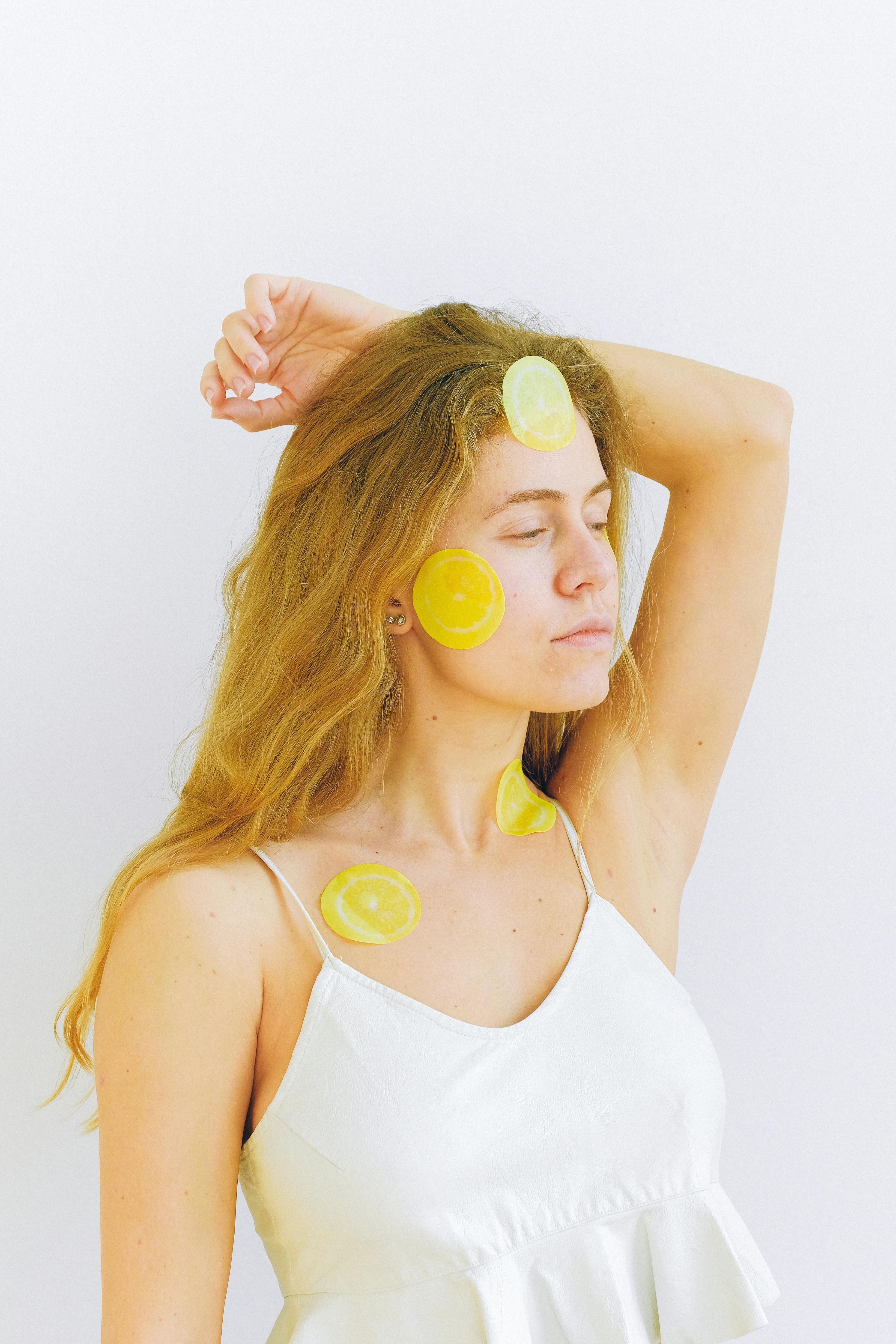I’ve always believed that true beauty comes from within, and that includes having a healthy complexion. As someone who has struggled with skin issues, I understand the importance of nourishing our bodies with the right nutrients to achieve that coveted glowing skin. In this article, I’ll be sharing some valuable nutrition tips that have helped me enhance my complexion from the inside out. So if you’re looking to unlock the secrets to radiant skin, keep reading and get ready to shine!

This image is property of images.pexels.com.
The Importance of Nutrition for Skin Health
As someone who has always struggled with various skin issues, I have come to understand the vital role that nutrition plays in maintaining a healthy complexion. While we often focus on external skincare routines and products, it is equally important to consider the impact of our diet on our skin. The saying “you are what you eat” couldn’t be more true when it comes to skin health.
The role of nutrition in skin health
Our skin is the largest organ in our body, and it serves as a protective barrier between our internal organs and the outside world. Nutrition plays a critical role in the overall health and appearance of our skin. The food we eat provides the necessary nutrients, vitamins, and minerals that our skin needs to function optimally.
The connection between diet and complexion
Have you ever noticed how certain foods seem to cause breakouts or exacerbate existing skin conditions? Well, it’s not just a coincidence. The food we consume can have a direct impact on our complexion. A poor diet, high in processed and sugary foods, can lead to inflammation, hormonal imbalances, and increased sebum production, all of which contribute to acne and other skin problems.
On the other hand, a diet rich in nutrient-dense foods can promote a healthy complexion. By nourishing our bodies with the right nutrients, we can support the skin’s natural repair processes, maintain elasticity, and achieve that coveted youthful glow.
Common skin problems caused by poor nutrition
When our diet lacks essential nutrients, our skin can suffer the consequences. Some common skin problems caused by poor nutrition include acne, dryness, dullness, premature aging, and inflammation. If you find yourself struggling with any of these issues, it may be time to reevaluate your eating habits and make some adjustments.

This image is property of images.pexels.com.
Essential Nutrients for a Healthy Complexion
Now that we understand the impact of nutrition on our skin, let’s explore some of the essential nutrients that are crucial for a healthy complexion.
Vitamins for skin health
Vitamins play a significant role in maintaining the health and appearance of our skin. Vitamin A, for example, is essential for cell turnover and skin regeneration. It helps combat acne, reduce the appearance of fine lines, and even out skin tone. Vitamin C is another powerhouse vitamin known for its antioxidant properties, which help protect the skin from free radicals and promote collagen production. Other vitamins, such as vitamins E and K, also contribute to a healthy complexion.
Minerals and trace elements for glowing skin
In addition to vitamins, minerals and trace elements are equally important for achieving a glowing complexion. Zinc, for instance, is known for its anti-inflammatory properties and its role in wound healing. Selenium, on the other hand, is a powerful antioxidant that helps protect the skin from UV damage. Other minerals like copper, magnesium, and iron all have their own unique benefits for the skin.
Proteins for maintaining skin elasticity
Proteins are the building blocks of our skin. They play a crucial role in maintaining its structure and elasticity. Collagen, a protein found abundantly in the skin, helps keep it plump and supple. Consuming adequate amounts of high-quality protein, such as lean meats, fish, tofu, and legumes, can support collagen production and promote youthful-looking skin.
Fatty acids for hydration and suppleness
Healthy fats, such as omega-3 and omega-6 fatty acids, are essential for maintaining proper hydration and suppleness of the skin. These fats act as natural moisturizers, preventing water loss and keeping the skin soft and smooth. Foods rich in fatty acids include fatty fish, avocados, nuts, and seeds.
Incorporating Antioxidants into Your Diet
Antioxidants are essential for skin health due to their ability to neutralize free radicals, unstable molecules that can damage skin cells and accelerate aging. Including antioxidant-rich foods in your diet can provide significant benefits for your complexion.
The benefits of antioxidant-rich foods
Antioxidants help protect the skin from environmental stressors, such as pollution and UV radiation. They also promote collagen production, improve skin texture, and reduce inflammation. By incorporating antioxidant-rich foods into your diet, you can support your skin’s natural defense mechanisms and achieve a radiant complexion.
Top antioxidant sources for skin health
Some of the top antioxidant sources for skin health include berries (such as blueberries, strawberries, and raspberries), dark leafy greens (like spinach and kale), green tea, citrus fruits, and colorful vegetables like carrots and sweet potatoes.
How antioxidants protect against skin damage
The primary role of antioxidants is to neutralize free radicals and prevent oxidative stress, a process that can lead to cell damage and premature aging. By scavenging these free radicals, antioxidants help maintain the health and integrity of skin cells, resulting in a more youthful and radiant complexion.

This image is property of images.pexels.com.
Hydrating Your Skin from Within
When it comes to achieving a healthy complexion, hydration is key. Proper hydration not only helps keep our bodies functioning optimally but also has a direct impact on the appearance of our skin.
The link between hydration and skin health
Dehydration can leave our skin looking dull, dry, and prone to wrinkles. When our bodies are lacking in water, our skin becomes less plump and supple, making it more susceptible to fine lines and wrinkles. On the other hand, well-hydrated skin appears more youthful, radiant, and smooth.
Recommended daily fluid intake for healthy skin
To maintain adequate hydration levels, it is recommended to drink at least 8 glasses (64 ounces) of water per day. However, keep in mind that individual needs may vary depending on factors such as physical activity, climate, and overall health. Additionally, incorporating hydrating foods into your diet can also contribute to your daily fluid intake.
Hydrating foods for a plump and glowing complexion
Incorporating hydrating foods into your diet can provide an additional source of hydration for your skin. Some hydrating foods include watermelon, cucumbers, tomatoes, celery, citrus fruits, and leafy greens. These foods are not only refreshing but also packed with vitamins, minerals, and antioxidants that promote overall skin health.
The Impact of Sugar and Processed Food on Your Skin
While it’s important to focus on incorporating nourishing foods into our diet, we must also address the negative impact of sugar and processed foods on our skin.
The negative effects of excessive sugar intake
Consuming excessive amounts of sugar can lead to a process called glycation, which damages collagen and elastin fibers in the skin. This can result in sagging skin, wrinkles, and a dull complexion. Additionally, high sugar intake can contribute to inflammation and acne.
How processed foods can contribute to skin problems
Processed foods, often high in refined carbohydrates, unhealthy fats, and artificial additives, can disrupt the natural balance of our skin. These foods have a high glycemic index, which can trigger inflammation, increase sebum production, and contribute to hormonal imbalances. As a result, skin problems such as acne, redness, and irritation can arise.
Tips for reducing sugar and processed food consumption
To minimize the negative impact of sugar and processed foods on your skin, it is essential to be mindful of your dietary choices. Opt for whole foods, such as fruits, vegetables, lean proteins, and whole grains. Limit your intake of sugary snacks, sodas, and processed snacks. Additionally, reading food labels and avoiding foods with added sugars or artificial ingredients can help support a healthy complexion.

Boosting Collagen Production through Nutrition
Collagen is a protein that gives our skin its structure, elasticity, and strength. As we age, collagen production naturally declines, leading to the appearance of wrinkles and sagging skin. However, there are ways we can boost collagen production through proper nutrition.
Understanding the importance of collagen for skin
Collagen is a critical component of our skin, making up approximately 75-80% of its dry weight. It provides structural support and helps maintain the firmness and elasticity of our skin. By promoting collagen production, we can help slow down the aging process and enhance the overall health of our skin.
Collagen-boosting vitamins and minerals
Certain vitamins and minerals play a crucial role in collagen synthesis. Vitamin C, in particular, is essential for the formation of collagen fibers. Other nutrients, such as copper and zinc, are also vital for collagen production and skin health.
Foods that promote natural collagen production
Including foods rich in collagen-boosting nutrients can help support natural collagen production. Citrus fruits, bell peppers, broccoli, tomatoes, and leafy greens are all excellent sources of vitamin C. Foods like shellfish, nuts, seeds, and legumes can provide copper and zinc, essential minerals for collagen synthesis. Additionally, bone broth, which is made by simmering bones and connective tissues, contains collagen and other beneficial compounds for skin health.
Maintaining a Healthy Gut for Radiant Skin
The gut-skin connection is a fascinating topic that highlights the intricate relationship between our digestive system and the health of our skin. A healthy gut can contribute to a radiant complexion.
The gut-skin connection
The gut and the skin share a close relationship through what is known as the gut-skin axis. The health of our gut microbiota, the complex community of microorganisms living in our intestines, can influence the health and appearance of our skin. An imbalanced gut microbiota can lead to inflammation, which can manifest in the form of skin problems such as acne, eczema, and rosacea.
Probiotics and prebiotics for a balanced gut
Probiotics are live bacteria and yeasts that can benefit our gut health. Consuming probiotic-rich foods, such as yogurt, kefir, sauerkraut, and kimchi, can help maintain a healthy gut microbiota and potentially improve skin conditions.
Prebiotics, on the other hand, are insoluble fibers that serve as food for the beneficial bacteria in our gut. Foods like bananas, onions, garlic, asparagus, and whole grains are excellent sources of prebiotics and can support a balanced gut.
Fermented foods and their impact on skin health
Fermented foods have gained popularity in recent years for their potential health benefits, including improved gut health and skin health. Fermentation is a process in which beneficial bacteria convert sugars into substances like lactic acid, which can promote a healthy gut microbiota. Including fermented foods in your diet, such as kombucha, tempeh, miso, and yogurt, can provide probiotics and other beneficial compounds that support radiant skin.
Eating the Rainbow: The Power of Fruits and Vegetables
The saying “eat the rainbow” holds true when it comes to achieving a healthy complexion. Fruits and vegetables are not only packed with vitamins and minerals, but they also provide a wide array of phytonutrients that can benefit our skin.
The benefits of a colorful diet for skin
Fruits and vegetables of different colors contain unique phytonutrients, such as antioxidants and anti-inflammatory compounds, that contribute to skin health. Including a variety of colorful produce in your diet ensures that you are getting a wide range of these beneficial compounds.
Specific fruits and vegetables for improved complexion
Some specific fruits and vegetables that are known for their skin-loving properties include berries, which are rich in antioxidants, citrus fruits, which are high in vitamin C, leafy greens like spinach and kale, which provide an abundance of vitamins and minerals, and red and orange vegetables like carrots and sweet potatoes, which contain beta-carotene, a precursor to vitamin A, essential for skin health.
Incorporating more plant-based foods into your meals
Incorporating more plant-based foods into your meals can have a significant impact on the health and appearance of your skin. Aim to make half of your plate filled with colorful fruits and vegetables, experiment with different recipes and cooking methods, and be open to trying new ingredients. Your skin will thank you for it.
The Role of Water in Skin Health
Water is often referred to as the elixir of life, and it’s no wonder why. Proper hydration is essential for overall health, and our skin is no exception.
Why water is essential for a healthy complexion
Water is vital for maintaining the moisture balance of our skin. It helps flush out toxins, supports the delivery of essential nutrients to the skin cells, and promotes a healthy cell turnover process. Without adequate water intake, our skin can become dehydrated, leading to dryness, flakiness, and a lackluster complexion.
Hydration tips for better skin
In addition to meeting your daily water intake goals, there are a few hydration tips that can contribute to better skin health. Avoid excessive caffeine and alcohol consumption, as they can dehydrate the body. Use a humidifier in dry environments to add moisture to the air. And consider using a hydrating facial mist or serum to deliver hydration directly to your skin.
Infused water recipes for added flavor and skin benefits
If plain water becomes mundane, you can experiment with infused water recipes to add flavor and additional skin benefits. Try infusing water with cucumber slices, mint leaves, lemon wedges, or berries for a refreshing and hydrating twist. These infused waters not only taste delicious but also provide additional vitamins and antioxidants that can support a healthy complexion.
Conclusion
When it comes to achieving a healthy complexion, a holistic approach is essential. While skincare products can certainly help improve the appearance of our skin, true radiance begins from within. By nourishing our bodies with the right nutrients, antioxidants, and hydration, we can support our skin’s natural processes, enhance its overall health, and achieve the glowing complexion we desire. So, let’s remember to treat our skin with kindness, both on the outside and from the inside out.

